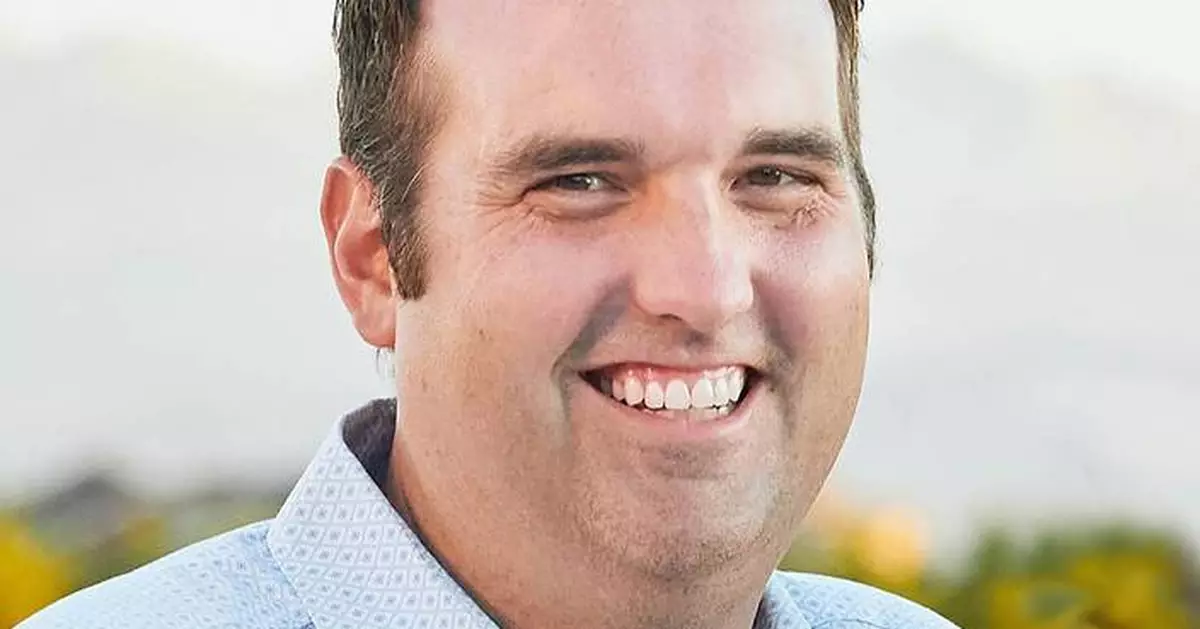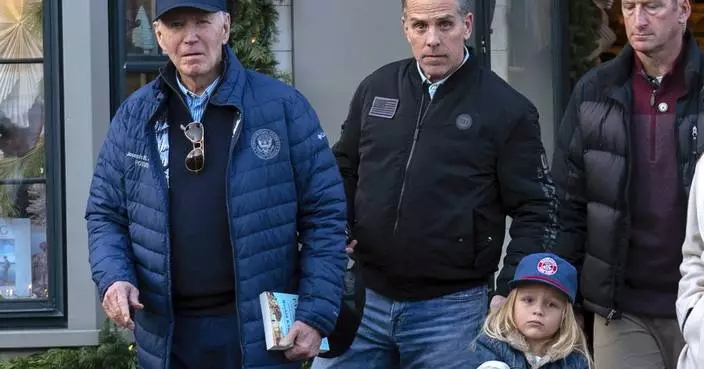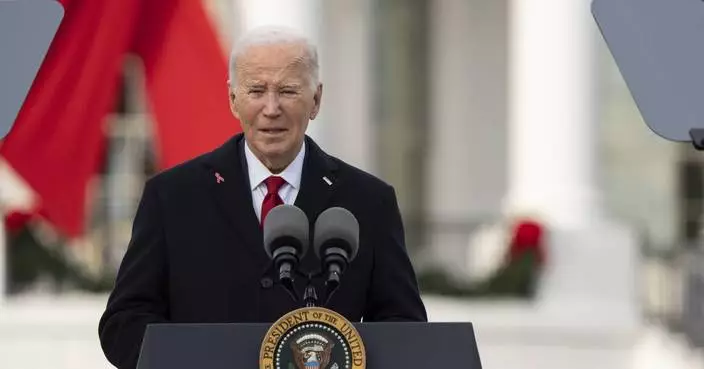TAMPA, Fla.--(BUSINESS WIRE)--Dec 2, 2024--
American Integrity Insurance Group, a trusted innovator in Florida’s residential property insurance industry, is thrilled to announce the promotion of Jon Ritchie to President. A seasoned strategist and collaborative leader, Ritchie has played a pivotal role in shaping the company’s success during his tenure as Chief Operating Officer since 2019. This appointment signals an exciting new chapter for American Integrity, reinforcing its commitment to innovation, growth, and exceptional service across the Southeast.
This press release features multimedia. View the full release here: https://www.businesswire.com/news/home/20241202568378/en/
Since its founding in 2007, American Integrity has earned its reputation as a trusted partner for nearly 360,000 homeowners, navigating Florida’s dynamic insurance market with resilience, creativity, and financial discipline. With more than 1,000 independent agents, the company is known for its ability to provide reliable coverage and foster long-term relationships.
“In an industry defined by constant change, Jon’s transformative leadership has elevated American Integrity, helping us thrive in one of the nation’s most challenging insurance markets,” said Bob Ritchie, CEO of American Integrity. “His strategic vision and ability to innovate have strengthened our foundation and prepared us for even greater success in the years ahead. Jon is the right leader to take us into this exciting next phase, guiding us through emerging challenges and opportunities.”
Collaborative Leadership for Continued Growth
Jon’s promotion marks a natural progression in American Integrity’s leadership. As President, Jon will focus on day-to-day operations and strategic initiatives, while continuing to work closely with Bob Ritchie, who remains fully engaged as CEO. Together, they will ensure a seamless partnership that drives the company’s long-term growth, expands its footprint, and maintains its reputation for trust and excellence.
A Culture of Excellence and Dedication
American Integrity’s success is deeply rooted in its team of dedicated employees and its award-winning workplace culture. Recognized as one of Tampa Bay’s Best Places to Work for ten consecutive years, the company fosters an environment where employees can thrive, contribute meaningfully, and find purpose in their work.
“Our employees are the heart of everything we do,” said Jon Ritchie. “Their dedication and expertise allow us to deliver outstanding service to our policyholders. I’m honored to lead such an exceptional team into the future.”
This commitment to excellence has earned American Integrity numerous accolades, including being named a USA Today Top Workplaces USA for four consecutive years (2021–2024) and a Tampa Bay Times Top Workplace for 10 years, with a top-three ranking among mid-sized companies in 2023. Additionally, the company was recognized in 2024 as one of America’s Best Workplaces in the inaugural year of this award and has been honored as one of the Best Places to Work in Insurance by Business Insurance magazine for 11 consecutive years (2014–2024).
Guiding Through Industry Challenges
In an era of increasing reinsurance volatility and climate-related risks, Jon Ritchie’s leadership is a stabilizing force for both the company and the industry. His ability to anticipate challenges and craft innovative solutions ensures American Integrity remains resilient and adaptable.
“As we face evolving risks and market dynamics, Jon’s leadership will allow us to navigate these challenges with confidence and deliver meaningful value to policyholders,” added Bob Ritchie. “His track record of working closely with regulators, legislators, and other stakeholders is invaluable as we continue shaping solutions that serve homeowners across the Southeast.”
Advancing Innovation and Expanding Reach
As COO, Ritchie led the charge in integrating advanced technology into American Integrity’s core operations. From proprietary algorithmic underwriting systems to predictive analytics, the company’s ability to harness cutting-edge tools has resulted in superior risk assessment, efficient claims processing, and tailored products that meet homeowners’ evolving needs. These initiatives have positioned American Integrity as a leader in innovation while staying true to its values of stability and trust.
“Our success is built on the seamless fusion of expertise and technology,” said Bob Ritchie. “While technology adoption continues to reshape the industry, we’ve spent years refining and optimizing our proprietary systems to deliver unmatched value to our policyholders and partners. Under Jon’s guidance, this approach has driven results and set a strong foundation for sustainable growth and long-term success.”
Looking ahead, Jon will continue overseeing strategic initiatives that combine modern technological advancements with deep market knowledge. These efforts will support the company’s geographic expansion, operational efficiency, and enhanced customer experiences, ensuring American Integrity remains at the forefront of the evolving residential insurance landscape.
Strengthening Community Impact
Beyond providing reliable insurance solutions, American Integrity is committed to supporting the communities it serves. From disaster relief efforts to ongoing philanthropic initiatives, the company’s dedication to community impact is at the core of its values.
“As we grow, our commitment to giving back will remain steadfast,” said Jon Ritchie. “Strengthening our relationships with communities isn’t just part of our mission—it’s part of our identity.”
Positioned for Scalability and Growth
With scalable operations, proprietary technology, and a proven track record of success, American Integrity is well-positioned to expand its footprint across the Southeast and beyond. The company’s financial discipline and innovative approach ensure it can meet rising homeowner demands while capitalizing on emerging market opportunities.
“At the intersection of expertise and technology, we’ve built a platform that not only meets today’s demands but is ready to seize tomorrow’s opportunities,” said Bob Ritchie. “Jon’s leadership will continue driving our growth strategy while delivering meaningful value to all stakeholders.”
A Personal Perspective on Leadership
“I am deeply honored to step into this role at such a pivotal moment for American Integrity,” said Jon Ritchie. “Our team is unmatched in its passion and expertise, and I look forward to building on our incredible legacy. Together, we’ll embrace opportunities, overcome challenges, and create a brighter future for our policyholders, partners, and employees.”
About American Integrity Insurance Group
American Integrity Insurance Group is one of Florida’s leading providers of residential property insurance, serving nearly 360,000 policyholders across Florida, Georgia, and South Carolina. Headquartered in Tampa, the company is dedicated to delivering innovative, reliable coverage and exceptional customer service. With a mission to protect homeowners while fostering an award-winning workplace culture, American Integrity continues to prioritize excellence, integrity, and community impact.
For more information, visit www.aiiflorida.com or connect with us on Facebook, X, LinkedIn, or Instagram.
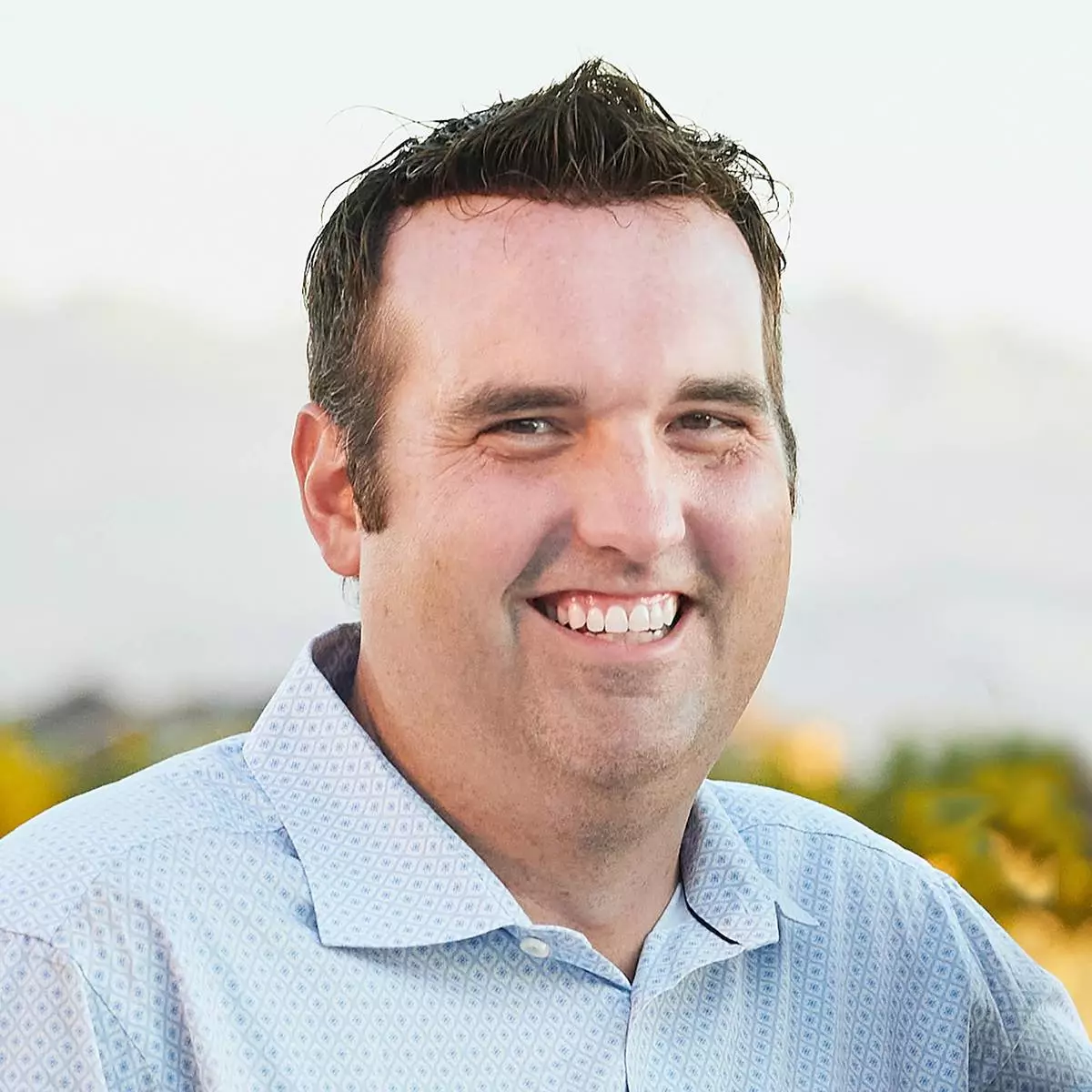

Jon Ritchie, President, American Integrity Insurance Group (Photo: Business Wire)
JERUSALEM (AP) — Hezbollah fired into a disputed border zone held by Israel on Monday in the first attack by the Lebanese militant group since its ceasefire with Israel took hold last week, saying the volley was a warning shot after what it called repeated Israeli violations of the truce.
Israeli leaders threatened to retaliate, further straining the fragile U.S.- and French-brokered ceasefire. The truce called for a 60-day halt in fighting, aiming to end more than a year of war between Hezbollah and Israel that's part of a wider regional conflict sparked by the devastating Israel-Hamas war in Gaza.
The Hezbollah volley came after multiple Israeli strikes in Lebanon in recent days that have killed at least four people and wounded others. Lebanon’s parliament speaker, Nabih Berri, accused Israel of violating the truce more than 50 times in recent days, with strikes, demolition of homes near the border and overflight of drones. Israel has said its strikes were in response to unspecified Hezbollah violations.
There was no immediate comment from the United States and France, which lead a commission meant to monitor adherence to the ceasefire’s terms.
The Israeli military said Hezbollah launched two projectiles toward Mount Dov, a disputed Israeli-held territory known as Shebaa Farms in Lebanon, where the borders of Lebanon, Syria, and Israel meet. Israel said the projectiles fell in open areas and no injuries were reported.
Hezbollah said in a statement that it fired on an Israeli military position in the area as a “defensive and warning response” after what it called “repeated violations” of the ceasefire deal by Israel. It said complaints to mediators tasked with monitoring the ceasefire “were futile in stopping these violations.”
Israeli Prime Minister Benjamin Netanyahu said the Hezbollah fire was “a serious violation” and vowed, “Israel will respond forcefully.”
Defense Minister Israel Katz said the volley “will be met with a harsh response.”
Under the ceasefire deal, Iran-backed Hezbollah has 60 days to withdraw its fighters and infrastructure from southern Lebanon, pulling back north of the Litani River, which is about 30 kilometers (18 miles) from the Israeli-Lebanese border. During that time, Israeli troops are also to withdraw to their side of the border.
On Monday before the Hezbollah fire, Israeli carried out at least four airstrikes and an artillery barrage on different parts of southern Lebanon, including a drone strike that killed a person on a motorcycle, according to Lebanese state media. Another strike killed a corporal in the Lebanese security services, state media said. The Israeli military said it carried out operations in the south against Hezbollah militants, “thwarting threats to Israeli civilians,” without elaborating.
Another drone strike Monday hit a Lebanese army bulldozer, wounding a soldier, in the northeastern town of Hermel – far north of the Litani River. The Israeli military said it hit military vehicles operating “in the area of a Hezbollah missile manufacturing site.”
The Lebanese army, which stayed on the sidelines of the Israel-Hezbollah fighting, is supposed to deploy additional troops in the south alongside U.N. peacekeepers to ensure Hezbollah’s withdrawal from the area. An Israeli strike on Saturday in the southern Marjayoun area killed two people, according to state media.
In a video statement, Israeli Foreign Minister Gideon Saar said Israel was striking Hezbollah fighters in the south when they are identified or seen attempting to move weapons.
“Their presence south of the Litani River is the most basic violation of the understandings … They must move north immediately,” he said, despite the 60-day period the deal gives for a pullback.
In Gaza, meanwhile, alarm over increasing hunger was growing — with the amount of food allowed in by Israel plunging over the past two months, compounded by a decision Sunday by the U.N. to halt aid deliveries from the main crossing into the territory because of the threat of armed gangs looting convoys.
Experts already warned of famine in the northernmost part of Gaza, which Israeli forces have almost completely isolated since early October.
Muhannad Hadi, the U.N. humanitarian coordinator for the occupied Palestinian Territories, warned on Monday of “severe hunger surging” in central and southern Gaza as well. Speaking at a conference in Cairo aimed at increasing aid, he said more than 1 million people have not received their monthly food rations since July.
Israel’s campaign in Gaza, triggered by Hamas’ Oct 7, 2023 attack on southern Israel, has driven almost the entire population of the territory from their homes. Hundreds of thousands of Palestinians now live in squalid tent camps and reliant on international aid.
In a tent camp in the central Gaza town of Deir al-Balah, Palestinians lined up at makeshift mud ovens trying to buy a few loaves of flatbread for their families.
With the price of flour mounting because of scarcity, the bakers — women displaced from further north — said they could bake less bread, and families could afford far less.
“They divide them to their children, one loaf every day,” said Wafaa al-Attar, who was selling bread she made in a clay oven.
A distant relative also selling bread, Enayat al-Attar, said some people cut up a single piece of flatbread among themselves. “Flour is running out for everyone,” she said.
The Israeli military said it allowed 40 trucks carrying 600 tons of flour for the World Food Program to enter the southern Gaza Strip on Sunday night, as well as 16 other food trucks.
Israel has said it is working to increase the flow of aid. November saw an increase in the average number of humanitarian trucks it let into Gaza, up to 77 daily from 57 the month before, according to official Israeli figures.
But the levels are still nearly the lowest of the entire 15-month war. And the U.N. says less than half of that actually reaches Palestinians because Israeli military restrictions, fighting and robberies make it too dangerous to deliver the aid.
On Sunday, the U.N. agency for Palestinian refugees, known as UNRWA, said it is halting aid deliveries through Kerem Shalom, the main artery for aid, because of repeated robberies. It blamed the breakdown of law and order in large part on Israeli policies.
Abou AlJoud reported from Beirut. AP correspondent Fatma Khalid contributed from Cairo.
Follow AP’s war coverage at https://apnews.com/hub/mideast-wars
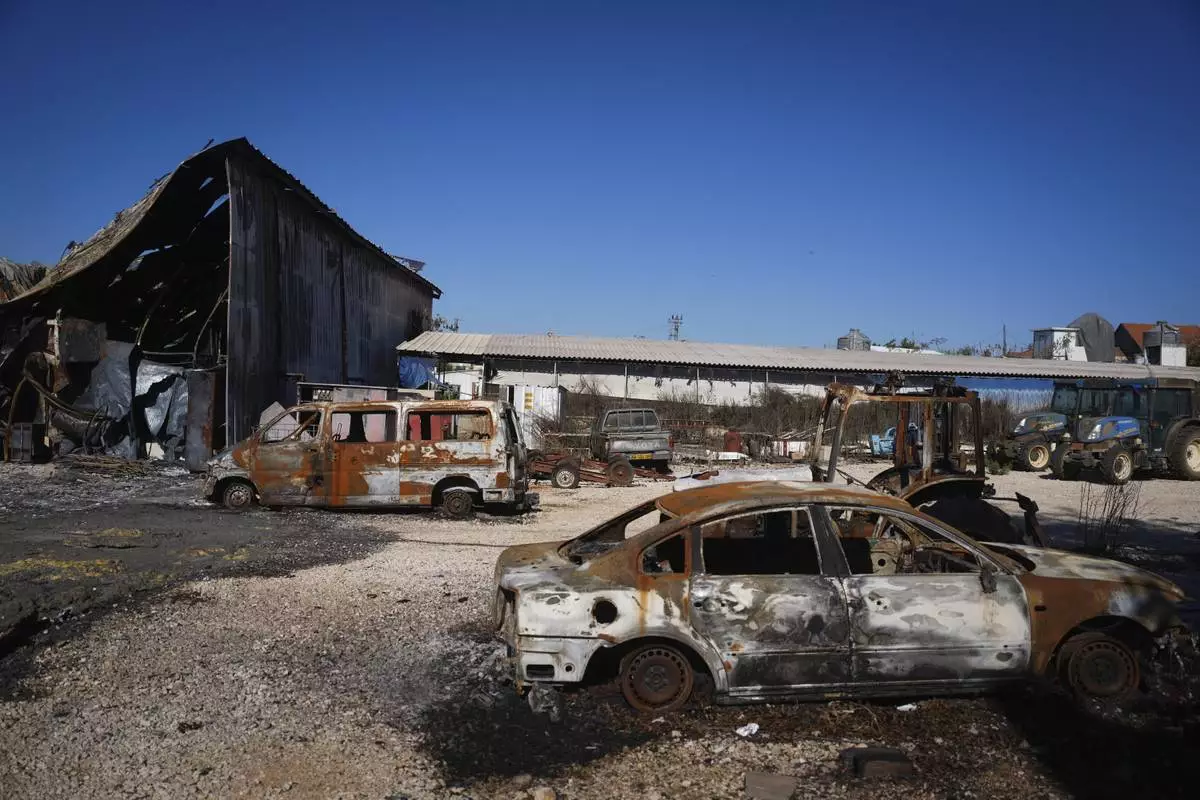
Burned-out cars and buildings from Hezbollah rockets are seen in the agricultural settlement of Avivim, near the Lebanese border in the Upper Galilee, Israel, on Monday Dec. 2, 2024. Despite the ceasefire with Hezbollah, Israelis remain wary of returning to the north. (AP Photo/Ohad Zwigenberg)
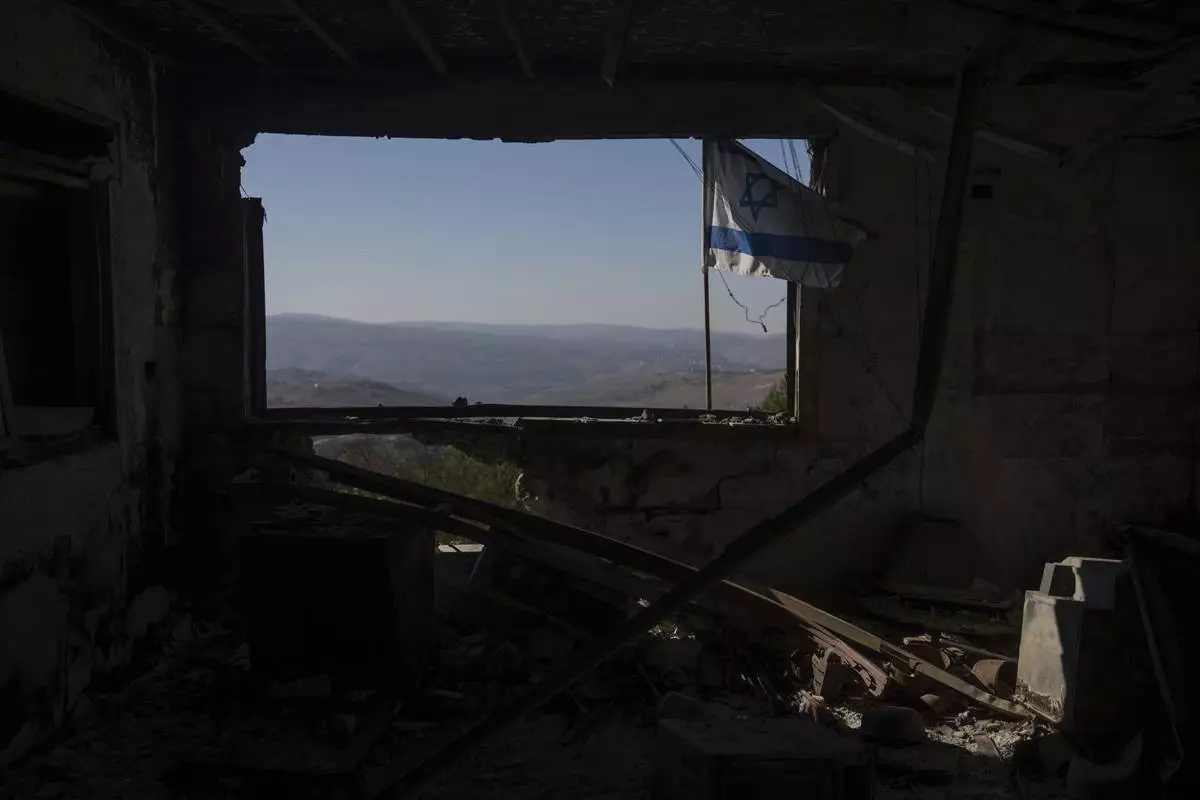
A view of Lebanese village through a window of a damaged house that was hit by a rocket fired from Lebanon, in the Kibbutz Manara, located in the upper Galilee, northern Israel, Monday Dec. 2, 2024. (AP Photo/Ohad Zwigenberg)
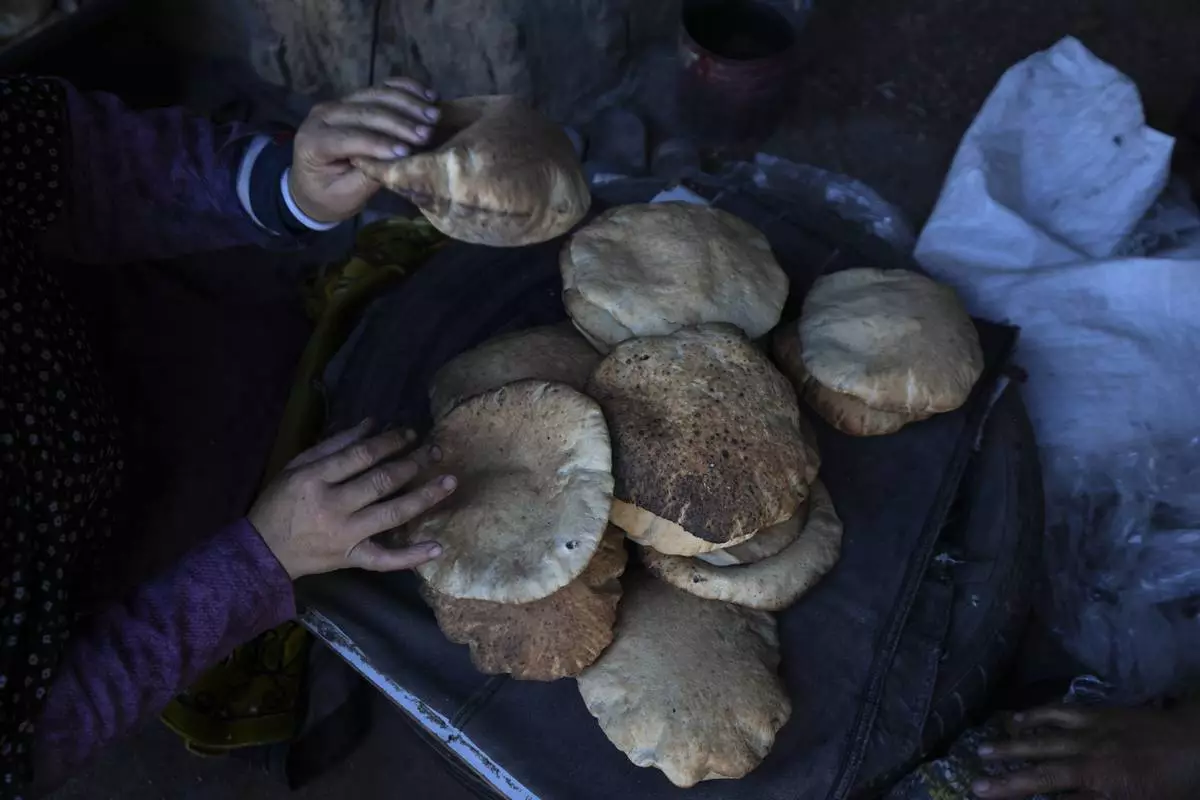
A Palestinian woman sorts through fresh bread amid dire food shortages in Deir al-Balah, Gaza Strip, Monday, Dec. 2, 2024. (AP Photo/Abdel Kareem Hana)
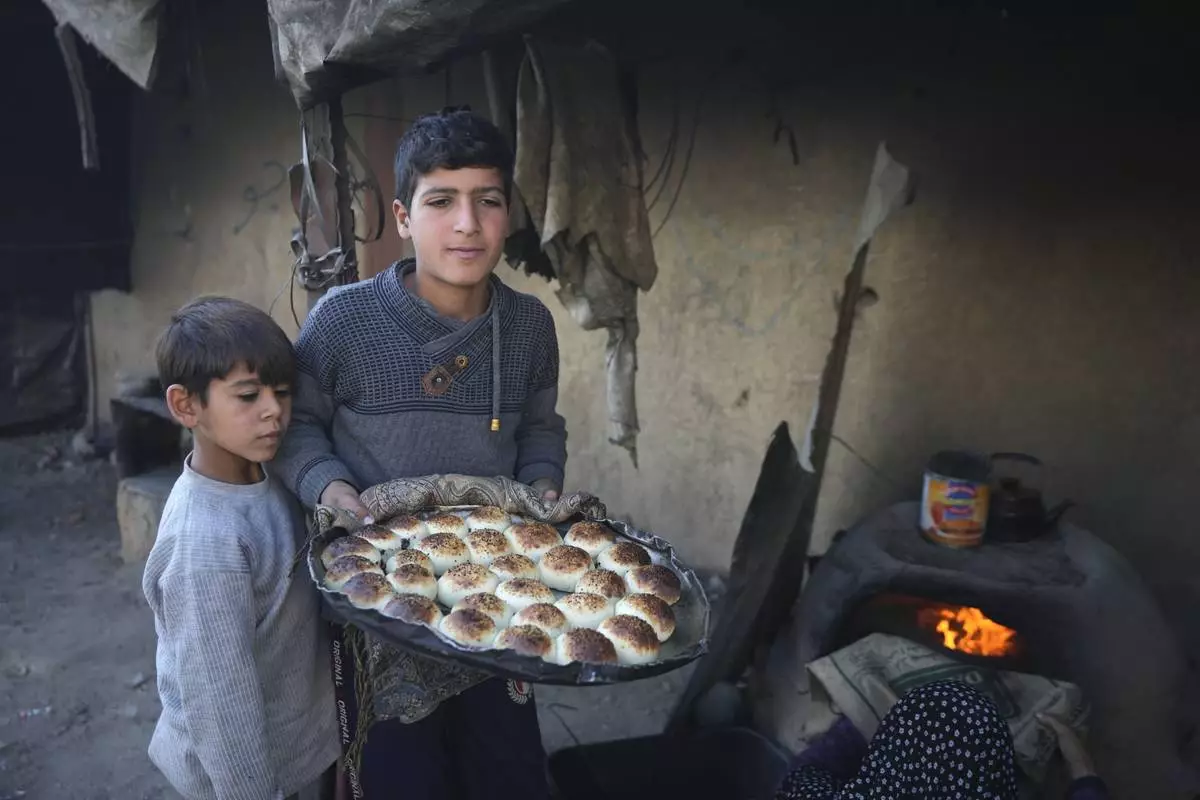
A Palestinian boy carries a tray of baked goods from a clay oven amid dire food shortages in Deir al-Balah, Gaza Strip, Monday, Dec. 2, 2024. (AP Photo/Abdel Kareem Hana)
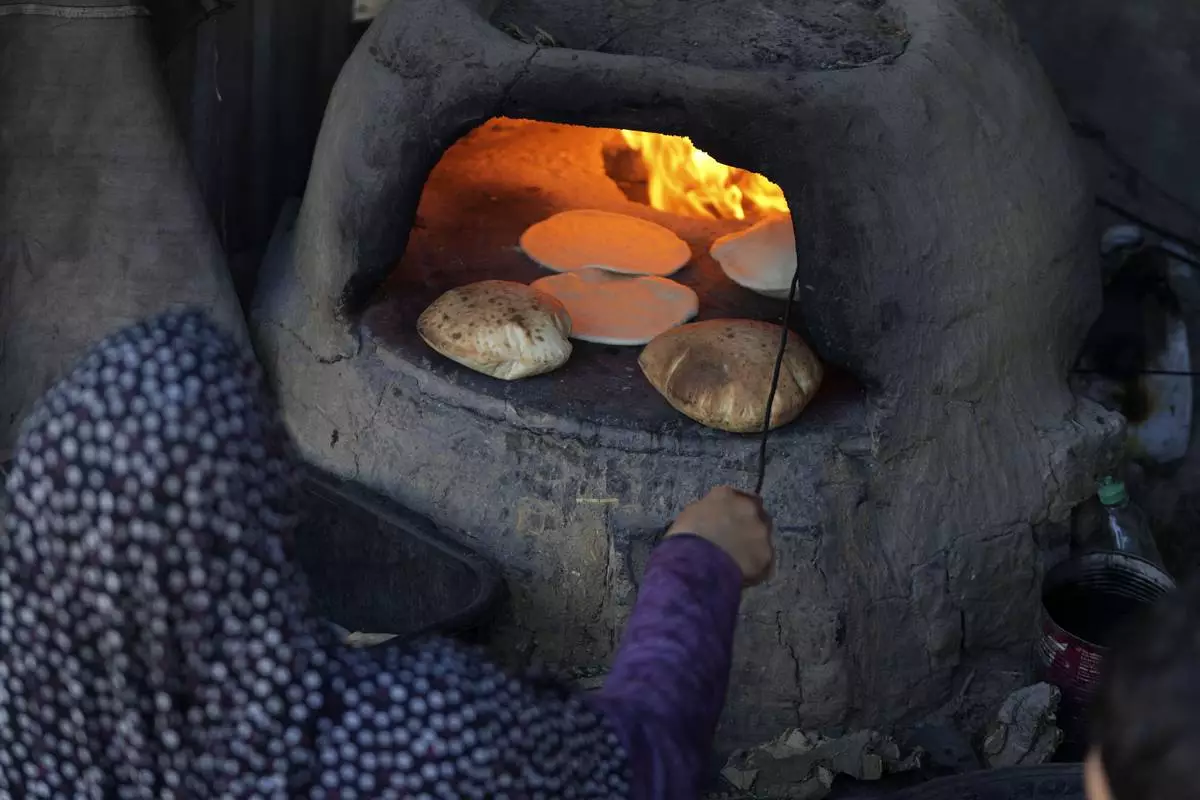
A Palestinian woman bakes bread in a clay oven amid dire food shortages in Deir al-Balah, Gaza Strip, Monday, Dec. 2, 2024. (AP Photo/Abdel Kareem Hana)
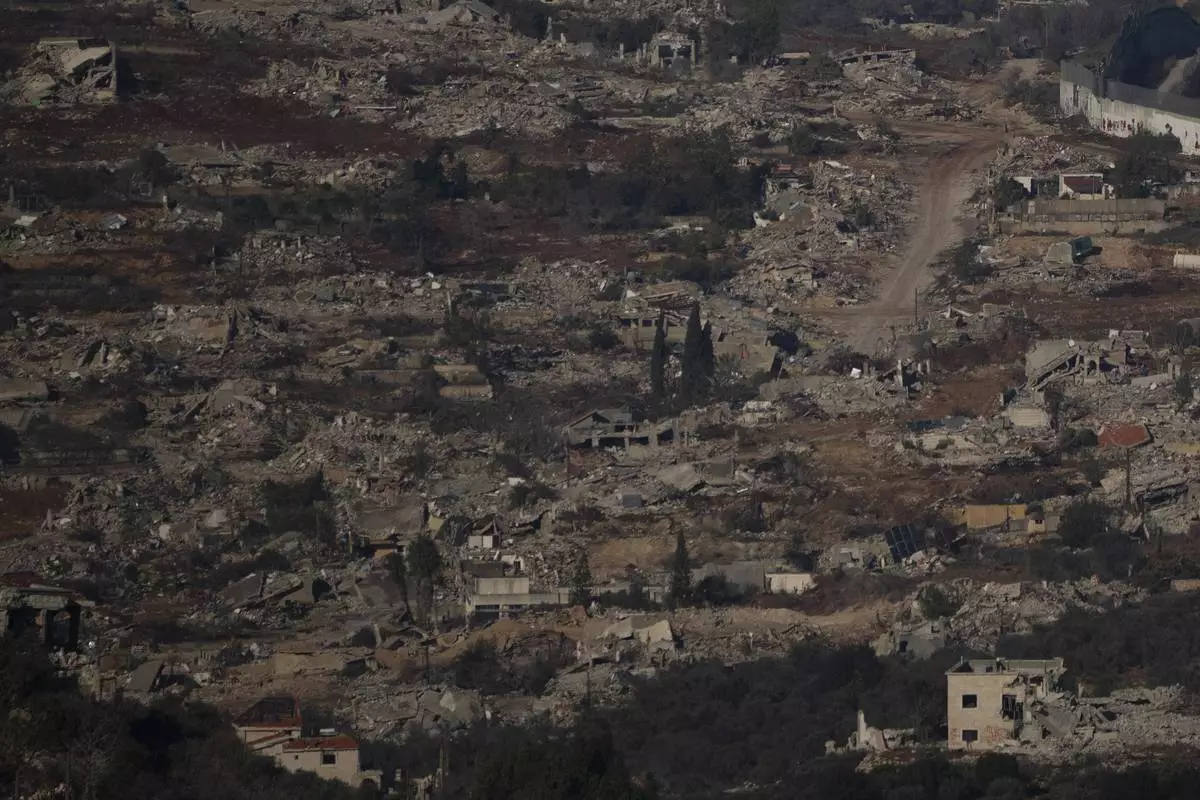
Destroyed buildings in an area of the village of Kfar Kila in southern Lebanon, located next to the Israeli-Lebanese border, as seen from northern Israel, Sunday, Dec. 1, 2024. (AP Photo/Leo Correa)
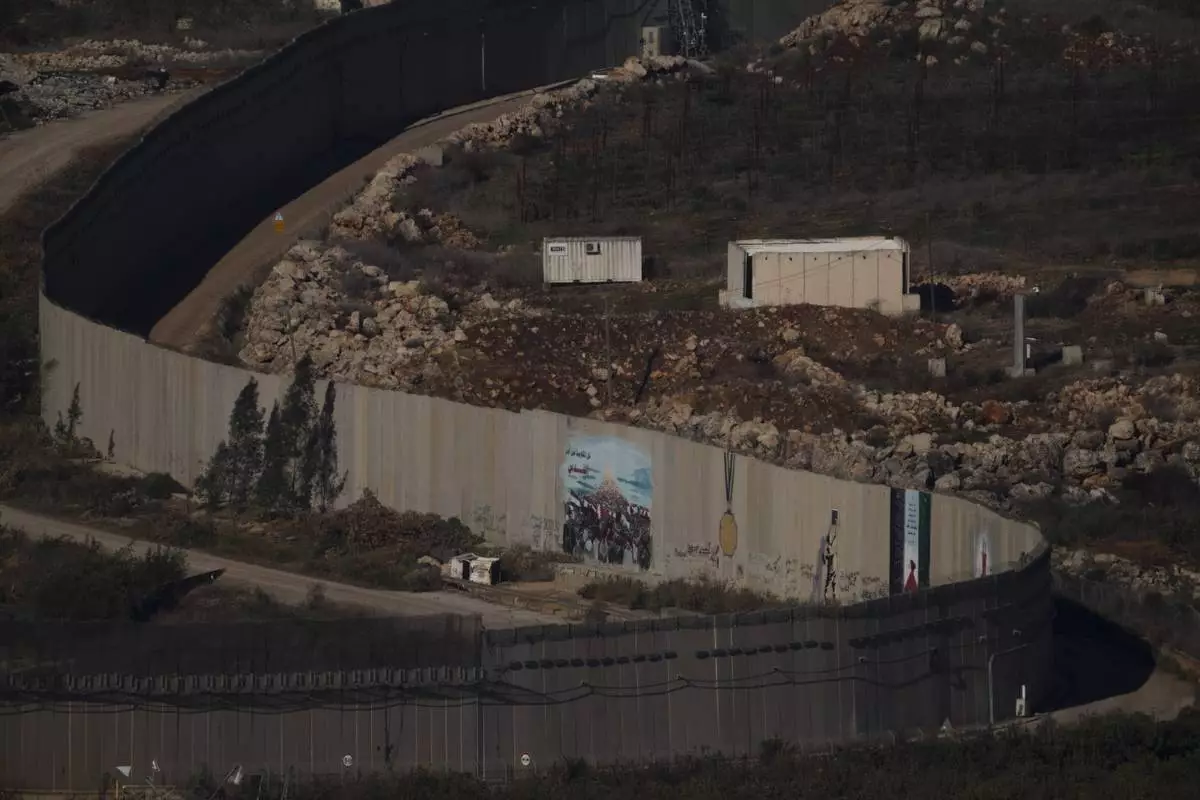
A wall marks the Israeli-Lebanese border near the village of Odaisseh in southern Lebanon, as seen from northern Israel, Sunday, Dec. 1, 2024. (AP Photo/Leo Correa)
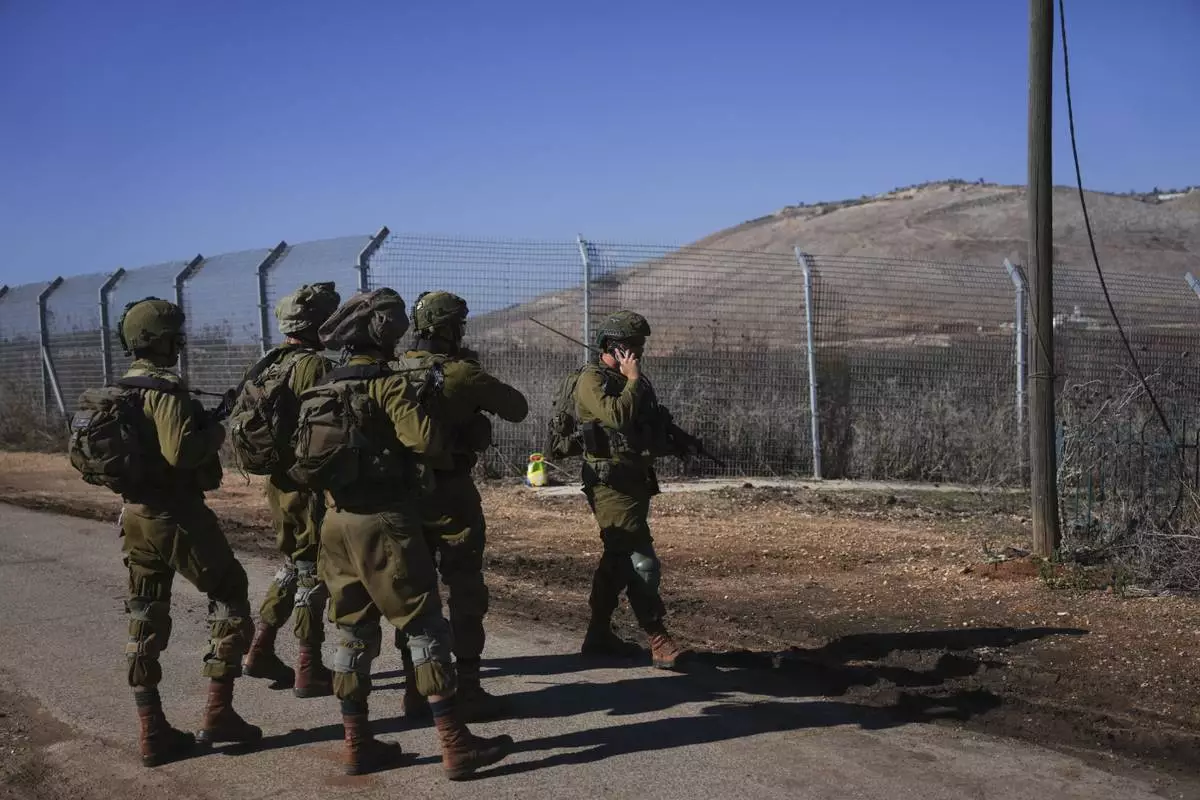
Israeli soldiers patrol the perimeter of the agricultural settlement of Avivim, next to the Lebanese border in upper Galilee, Israel, Monday Dec. 2, 2024. (AP Photo/Ohad Zwigenberg)




